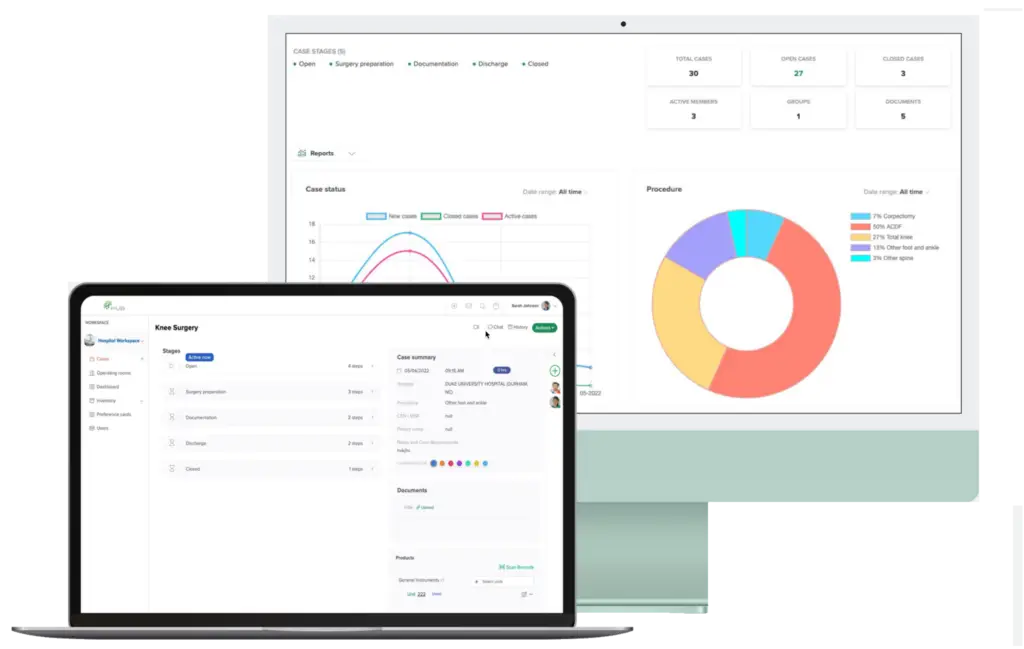Effective distributor management is essential for medical device manufacturers to ensure product availability, regulatory compliance, and customer satisfaction. With a robust strategy, manufacturers can enhance their distributor relationships, streamline operations, and ultimately drive sales growth. This article explores key strategies for better managing medical device distributors.
Understanding Distributor Management Challenges
Regulatory Compliance
Medical device manufacturers must ensure their distributors comply with stringent regulatory standards set by agencies such as the FDA and EMA. Non-compliance can lead to penalties, product recalls, and damage to the brand’s reputation.
Inventory Management
Maintaining optimal inventory levels across different regions can be challenging. Manufacturers need to balance the risk of stockouts against the cost of holding excess inventory.
Communication Gaps
Effective communication between manufacturers and distributors is crucial for timely product deliveries, resolving issues, and sharing market insights. Miscommunication can lead to delays and inefficiencies.
Performance Monitoring
Tracking distributor performance helps manufacturers identify areas for improvement and recognize high-performing partners. Without proper monitoring, it can be difficult to maintain consistent service levels.
Strategies for Better Distributor Management
1. Implement Advanced Software Solutions
Utilizing advanced distributor management software can streamline operations and enhance collaboration. Features to look for include:
- Real-Time Inventory Tracking: Monitor stock levels and demand forecasts to optimize inventory.
- Automated Order Processing: Reduce manual errors and speed up order fulfillment.
- Performance Dashboards: Track distributor performance metrics to identify trends and areas for improvement.
2. Establish Clear Communication Channels
Effective communication is vital for distributor management. Manufacturers should:
- Regular Updates: Provide distributors with regular updates on product information, pricing, and promotional activities.
- Centralized Communication Platform: Use a centralized platform for all communications to ensure everyone is on the same page.
- Feedback Mechanism: Implement a system for distributors to provide feedback and report issues promptly.
3. Provide Comprehensive Training and Support
Training and support ensure distributors are well-equipped to represent and sell the manufacturer’s products effectively. This can include:
- Product Training: Regular training sessions on new products, usage guidelines, and troubleshooting.
- Sales Training: Techniques to improve sales skills, customer engagement, and upselling.
- Technical Support: Access to technical resources and support teams for troubleshooting and assistance.
4. Monitor and Evaluate Distributor Performance
Regular performance evaluations help maintain high standards and address any issues proactively. Key performance indicators (KPIs) to monitor include:
- Sales Volume: Track sales against targets to identify high and low performers.
- Customer Satisfaction: Measure customer feedback and satisfaction levels with distributor services.
- Compliance: Ensure distributors adhere to regulatory requirements and company policies.
5. Foster Strong Relationships
Building strong relationships with distributors can lead to better collaboration and mutual success. Strategies include:
- Regular Meetings: Schedule regular meetings to discuss performance, challenges, and opportunities.
- Incentive Programs: Implement incentive programs to reward top-performing distributors.
- Joint Marketing Efforts: Collaborate on marketing campaigns and promotional activities to boost brand visibility and sales.
Real-World Example: HUB Healthcare’s Approach
HUB Healthcare offers a comprehensive platform designed to enhance communication in healthcare, streamline care coordination, and improve overall workflow efficiency. By leveraging HUB Healthcare’s robust tools, medical device manufacturers can:
- Optimize Inventory Management: Real-time tracking and automated reordering ensure optimal stock levels.
- Enhance Communication: Centralized communication tools facilitate seamless collaboration between manufacturers and distributors.
- Monitor Performance: Advanced analytics and performance dashboards provide insights into distributor performance, enabling data-driven decisions.
Conclusion
Effective distributor management is crucial for the success of medical device manufacturers. By implementing advanced software solutions, establishing clear communication channels, providing comprehensive training, monitoring performance, and fostering strong relationships, manufacturers can enhance their distributor partnerships and drive business growth. HUB Healthcare’s platform can support these efforts, ensuring streamlined operations and improved outcomes.








